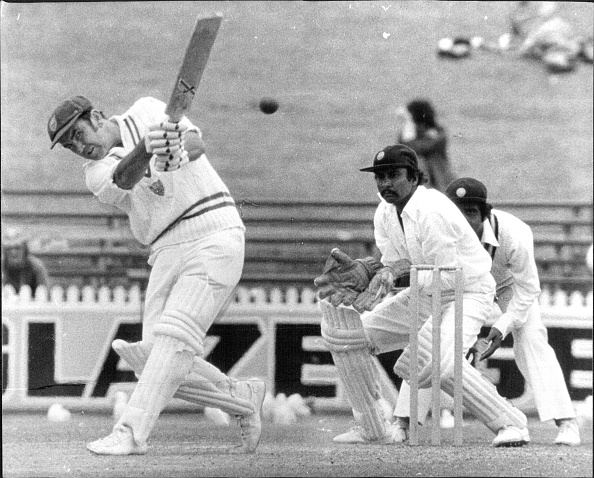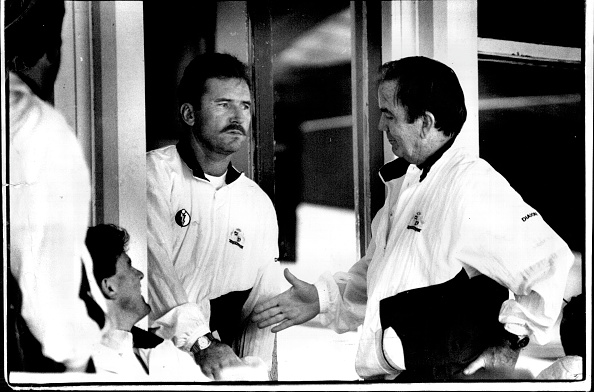
As a player, captain and coach, Bob Simpson was one of the most influential figures in Australian cricket.
Simpson first pulled on the baggy green cap of the Australian test cricket team in 1956, and famously made a comeback to captain Australia aged 41 after the game was rent asunder by World Series Cricket in 1977.
His illustrious career involved him taking on the roles of player, captain, law-maker, referee and coach at club, state, national and international level, and earned him respect throughout the cricketing world.
Robert Baddeley Simpson was born in inner-Sydney’s Marrickville on February 3, 1936.
He took to cricket early, captaining teams in primary and high school where he was chosen to represent his state aged 12 and taking the field in his first Sheffield Shield game for NSW aged just 16.
"I was a naturally ambitious person anyway and never had any doubts I could go further," Simpson once said.
"It sounds cocky but I always believed in my own talents."
It was another four years before the man known as Simmo was tapped for Australia, making his international debut in a tour against New Zealand in 1956, after being previously overlooked for the Ashes tour of England.
He was a great accumulator of runs, and formed with Bill Lawry a formidable opening partnership in the 1960s.
He was the second Australian (after Don Bradman) to make 300 in a test, scoring 311 against England at Old Trafford in 1964, his maiden test century.
He was a peerless slips fieldsman, taking a then-record 110 catches in 62 tests between 1957 and 1978.
Simpson served as vice-captain of both New South Wales and Australia under Richie Benaud, and led the national team for the first time in 1964, playing South Africa in the New Year’s Day test in Melbourne after Benaud injured himself playing grade cricket.

Nine years after his retirement as a test player, World Series Cricket divided the game and Simpson returned in 1977 at the age of 41 to lead the Australian team for test series against India and the West Indies.
After his playing career he went on to coach in five of the 10 test-playing countries and also helped spread the gospel in lesser cricketing outposts like Nepal, China and the Netherlands.
He was a member of the MCC committee which rewrote the laws of the game in the late 1990s.
He was first appointed a Member in the Order of Australia in 1978, which was upgraded to Officer (AO) in 2007 for services to the game as a coach, consultant and administrator.
Simpson was most proud of his achievements as a coach, notably of the Australian team between 1986 and 1996, a decade in which Australia emerged from a lean period to become the powerhouse of the modern game.
Under his firm and steady guidance, Australia won the 1987 World Cup, four Ashes campaigns and in 1995 the Frank Worrell Trophy, ending a 17-year drought against the West Indies.
"He basically maintained that if you become a really, really solid and high-quality fielding team, even if you have not got the best cricket team, you can stay in the contest for longer, if the other side is better than you," Alan Border, the captain for most of Simpson’s tenure as coach, said.
"You can win games just on fielding alone."
When interviewed by AAP in 2007 ahead of his AO, Simpson said he was worried batsmen were having their individuality coached out of them.
"My theory is that you coach the naturalness of a player, and once you develop that you get all these lovely individual styles which are so attractive to the public and so effective," he said.
"If everyone bats the same ... it’s very easy to bowl to them."
Bob Simpson died on August 16 aged 89. — Agencies.












